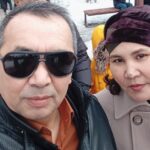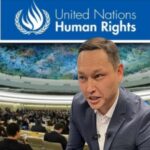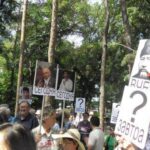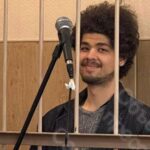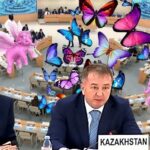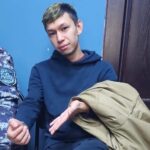Session:
Distinguished participants,
This conference and this session in particular focus on stability, economic and political progress and security in
In connection with this, I would like to recall a recent debate in the media where a number of Russian and Western pundits, among them Liliya Shevtsova, Georgiy Sattaroc, Dmitriy Vaisburd, Vladislav Inozemtsev, Alexander Arbatov, Freedom House’s David Kramer, expert on Russia Thomas Graham, UK expert Andrew Wood and others discussed the US strategy towards Russia. In my view, what was said in this discussion about US interests and policy towards
There has always been a complicated relationship between the realpolitik strategies that emphasize the
At the start of the perestroika in the
Since we are talking about the mid- and long-term prospects of
I would like to give an overview of threats to stability, development and security in the region from my own perspective, speaking as a human rights activist with over twenty years of experience in analyzing and evaluating political process in the region.
Clearly the threats to the regional security and stability originate both inside and outside of the region. Withdrawal of coalition forces from
There is a number of other external political factors, ranging from conflicts at the Middle East and in the North Caucasus to Russia’s and China’s political ambitions, volatility of global economy, water and trans-border resources issues, drug trafficking – all of these pose threats to the region’s security and stability. But internal factors, in my view, are of a greater importance.
I would like to start with the factor, which I find to be frequently overlooked. I am talking about the consequences of economic transition in the mid-90s. At this stage in the world history, the post-Soviet region is the only example of an attempt to transition from the state-managed plan economy to private-property based market economy. Importantly, this economic transition mainly benefited the ruling elite, the Soviet party leaders and bureaucrats.
Just in one generation’s lifespan we have seen a shift from shared property and almost no class division to a totally different situation where the gap between the social groups is ever increasing, economic problems have multiplied and many people, especially among the low-income families and rural residents, have little hope for affluence.
People in the new post-Soviet countries have witnessed how much of the formerly state-owned property was accumulated by the ruling elite, how billionaires have built their fortune because they had access to power and could redistribute economic resources in their own interests. This redistribution of property happened outside of the legal framework and the public never saw this appropriation of state resources as legitimate. Consequently, there has never been any notion of sanctity of private property in post-Soviet countries. It is also a common understanding that if the power changes hands, the property can be taken away from its current owners.
This economic predicament has a number of side effects. Firstly, the rulers are driven by the need to protect their wealth and in order to do that they have to maintain a political system based on monopoly of power and personal guarantees. Security and stability in the countries of the region are not underpinned by any clear rules established by the law and supported by the effective state institutions. Not at all. Stability is maintained by reinforcing a «patronate and clientelle» pyramid where specific personalities (patrons) act as guarantors of safety because they have concentrated power in their own hands.
These systems naturally bread widespread corruption and result in one force taking total political control and dominating over legal institutions, courts and law-enforcement. These systems also rule out any real opposition.
Under the current political system there is no way this private property will be nationalized again. At the same time the people who now act as guarantors of stability are naturally aging and are nearing the end of their political career. This brings two issues to the top of the elite’s political agenda: firstly, there is a need to plan for succession of power and, secondly, succession should ensure safety to the incumbents and their property.
Political scandals, arrests and trials of high-profile officials are now frequent in all of Central Asian countries. Very few people think that these trials have anything to do with fight against corruption. The sheer scale of in-fighting among the elite means that personal guarantees no longer provide a necessary level of security. There is an urgent need to replace the personal guarantees with institutional ones. And these institutions and new rules should be established while allowing the current rulers to hold on to their property that the people still see as illegitimate.
In my view, political succession that is approaching fast, particularly in
Until this challenge is addressed, the countries of the region will always be susceptible to risks that arise in case of any change of political personalities. The severity of these risks might vary from country to country, but the essence of the problem remains the same across the region.
Succession risks are further exacerbated by the growing social tension, resulting from the erosion of the community services infrastructure that was built back in Soviet times. Efforts needed to restore and develop this infrastructure will bear hard on the state and on the people. The growing gap between the rich and the poor also increases the potential for conflict, especially considering that medium and big business has very low level of social responsibility.
And, finally, a big challenge is that people have lost almost all trust into the state institutions and the legal system. Lack of trust results in legal nihilism and preference for coercion instead of negotiation.
Given this lack of trust and the dormant conflict potential, the repressive policies pursued by the Central Asian authorities are likely to backfire. As the governments in the region take more effort to take out the moderate, non-sectarian and non-violent opposition, they create greater vacuum that invariably fills with radicalized groups that hold Islamist or extreme left views.
The challenges I have listed are by no means exhaustive, but I have chosen to focus on them because these are system-wide risks that have their own logic and their own history. These challenges require adequate response in short-, mid- and long-term perspective.
Until these challenges are addressed, Central Asian countries can not hope for any democratic progress or improvement in human rights situation.
No amount of macroeconomic success, inward investments or GDP growth will result in removal of these massive internal political threats.
Thank you for your attention.



